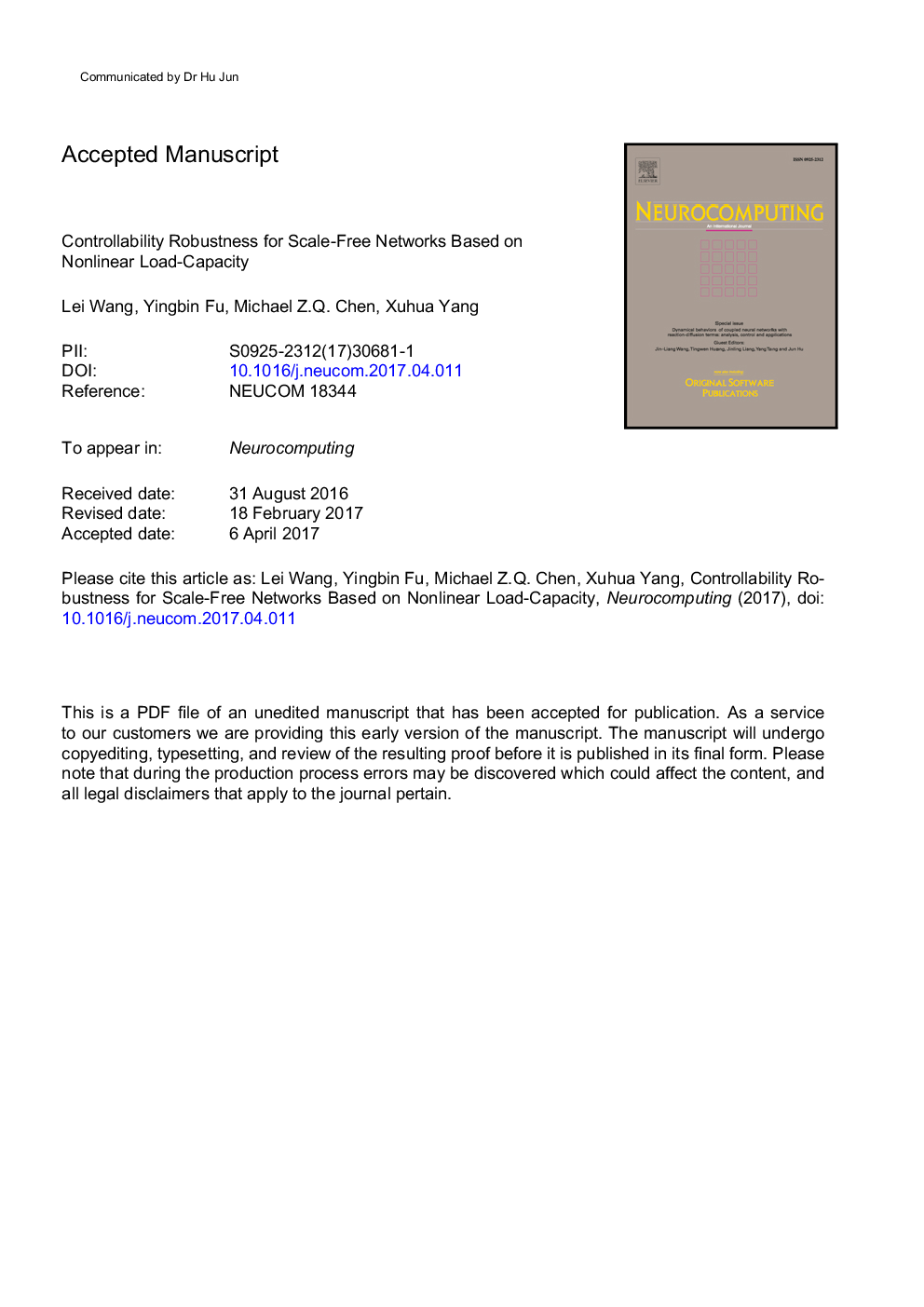| Article ID | Journal | Published Year | Pages | File Type |
|---|---|---|---|---|
| 4947378 | Neurocomputing | 2017 | 23 Pages |
Abstract
In this paper, we propose a general nonlinear load-capacity model to investigate the controllability robustness of scale-free networks under the cascading failure triggered by removing the highest-load edge. Based on the nonlinear model, the effect of the capacity distribution is studied to enlighten how to reduce network cost by adjusting capacity distribution for controllability robustness against cascading failures. By performing numerical simulations on Barabási-Albert (BA) scale-free networks and some real networks, we find that the unoccupied capacities of nearly highest-load edges make little impact on controllability robustness, and the high-load edges become more important to controllability robustness as the power law exponent increases. In particular, for scale-free networks with small-degree power law exponents or small out-in degree correlation coefficients, by properly reducing the unoccupied capacities of high-load edges, we can effectively cut down the network cost without reducing the controllability robustness.
Keywords
Related Topics
Physical Sciences and Engineering
Computer Science
Artificial Intelligence
Authors
Lei Wang, Yingbin Fu, Michael Z.âQ. Chen, Xuhua Yang,
